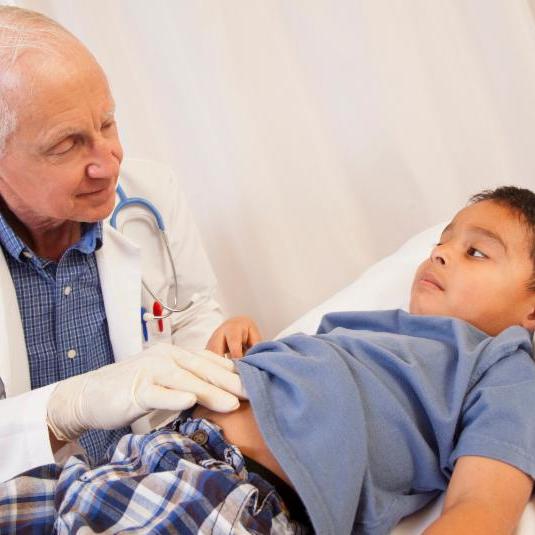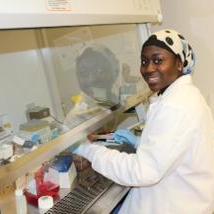|
|

Department & Center Innovation Chiefs - Faculty Voices in Support of Innovation
|

Last month, we announced our new FFMI Faculty Champions. Did you know that each of our departments and centers also have named Innovation Chiefs?
The Innovation Chiefs help introduce their colleagues to FFMI resources and serve as advocates for innovation and FFMI's mission to translate discovery, ultimately positively impacting human health.
|
Department
|
Chief
|
|
Anesthesiology
|
Matt Sigakis
|
| Biological Chemistry |
Alex Ninfa |
| Biomedical Engineering |
Rachael Schmedlen |
| Cardiac Surgery |
Ming Si |
| Cell & Developmental Biology |
Dawen Cai |
| CENTER - Cancer Center |
Al Rehemtulla |
| CENTER - MCIRCC |
Rodney Daniels |
Computational Medicine and
Bioinformatics |
Kayvan Najarian |
| Dermatology |
Gary Fisher |
| Emergency Medicine |
Will Meurer |
| Family Medicine |
Grant Greenberg |
| Human Genetics |
David Burke |
| Kellogg |
Thiran Jayasundera |
| Learning Health Sciences |
Karandeep Singh |
Molecular and Integrative
Physiology |
Bill Rainey |
| Neurology |
Ron Chervin |
| Neurosurgery |
Oren Sagher |
| Obstetrics and Gynecology |
Mitchell Berger |
| Ophthalmology |
David Zacks |
Otolaryngology - Head and
Neck Surgery |
Glenn Green |
| Pediatrics |
John Charpie |
| Pharmacology |
Vince Groppi |
| Physical Medicine & Rehab |
Chandramouli Krishnan |
| Psychiatry |
Paresh Patel |
| Radiation Oncology |
Larry Antonuk |
| Radiology |
Paul Carson |
| Surgery |
Michael Sabel |
|

The Buddy Button - Adjustable Gastric Feeding Tube for Children
|
Novel device gives sick children a more comfortable and secure gastric feeding tube option
|

Gastrostomy tubes, or G-tubes, deliver food directly into the stomach in order to meet a patient's nutritional requirements when they cannot be fed orally. G-tube placements are among the top five surgical procedures in the United States, with over 566,000 placements annually, including 22,600 in children.
Traditional "non-button" G-tubes are bulky devices that protrude significantly from the abdomen. More commonly, "button" devices are used due to their lower profile, particularly in children. G-tubes are fixed in the stomach using either a painful rigid internal bumper or an inflatable balloon.
All of these devices are susceptible to dislodgement by simple tugging or balloon failure (rupture, leakage, under-inflation), which can lead to emergency procedures that are costly to both hospitals and patients, totaling up to $250 million annually. Hospitals also face a large financial burden from stocking multiple G-tube sizes to accommodate varying patient sizes.
James Geiger, M.D., Professor of Surgery, Executive Director of the University of Michigan Pediatric Device Consortium, and Saja Al-Dujaili, Ph.D., worked closely with
Farokh Demehri, M.D.,
Tina Thomas, M.B.B.S., and
Jonathon Campbell, M.Eng., to design the Buddy Button, a low-profile, adjustable gastrostomy tube that includes a fixation mechanism for added security, but maintains easy, painless insertion and removal.
"The Buddy Button is a one-size-fits-all G-tube, customizable for each patient at bedside," says Dr. Geiger. "Our initial focus is on the pediatric population, but it can also be used for adult patients."
The Buddy Button's innovative fixation mechanism is a non-balloon style that reduces pain during insertion and prevents unintended dislodgements. Additionally, the mechanism is not under pressure, so the membrane will not leak, allowing for longer use (at least 6-8 months) between G-tube changes.
"MTRAC funding is helping to reduce the technological and regulatory risks for the Buddy Button in order to achieve a license agreement with existing G-tube manufacturers and move this product to market," says Dr. Geiger. "We appreciate the guidance and advice as we work to build a second prototype and manage regulatory consultation and filing."
MTRAC is supported by the
U-M Medical School, the
U-M Tech Transfer Office, and the
Michigan Economic Development Corporation and works to "fast forward" projects with a high potential of commercial success, with the ultimate goal of positively impacting human health. The Buddy Button project is just one of 12 projects in the 2016 cohort funded by MTRAC. In 2014, the program funded 11 teams for early commercialization development, and 11 teams were funded in 2015.
|

Save the Date - Researchpalooza is Wednesday, August 31!
|

Come join FFMI at Researchpalooza - a fun event that spotlights the labs and offices here to serve you at the University of Michigan.
The entire FFMI team will be available to talk to you about U-M's wide variety of biomedical commercialization programs and funding opportunities, including information on the next round of MTRAC RFPS.
|

Looking for Research Assistants?
|
Award-winning UROP Program seeks research opportunities for students for 2016 academic year
|

The Undergraduate Research Opportunity Program (UROP) is currently recruiting researcher opportunities for the 2016-2017 academic year. UROP targets first and second year students and community college transfer students, engaging them as research assistants for ongoing or new projects.
Medical school faculty, postdoctoral fellows, and research scientists benefit from the students' additional research assistance and get the opportunity to form valuable partnerships through all four years and beyond, as many UROP students pursue careers as health and life science researchers.
Since its inception in 1988, UROP has been committed to engaging a diverse group of students in research. While UROP is open to all first and second year students on campus, we maintain a strong interest in engaging women in science and historically underrepresented minority students in research. UROP students participate in the program for either academic credit or work-study funds. All work-study costs are covered by UROP. Supplementary research funds are also available from UROP to the sponsoring laboratory or clinical research project.
CLICK HERE for more information and to apply to be a 2016-2017 Research Mentor.
|

R01 Boot Camp Makes Major Impact
|
Mentorship program helps UMMS faculty receive first NIH R01 grants
|

The Mentored Research Academy: R01 Boot Camp, now in its third year, is a multi-tiered mentorship program to support and increase the success rate of Medical School faculty applying for their first NIH Research Project Grant (R01).
Managed by the Medical School Office of Research and developed as part of Dean Woolliscroft's long-term Strategic Research Initiative, the R01 Boot Camp pilot program launched in 2013 with 40 mentees.
As of May 2016, pilot program mentees have produced:
- $37.4M in funded proposals.
- 15 R01s have been awarded to 14 mentees - 43.8% success rate.
- 19 R01s still pending.
In preparing to submit their NIH R01 applications, mentees participate in several activities to develop and review their proposals. They also receive individual counsel on their research plans from subject matter experts and their faculty coaches.
Several mentees from the pilot program have continued with R01 Boot Camp 1.2 to prepare their A1 or new R01 application(s) in response to the NIH summary sheets they received.
|
R01 Boot Camp Application Deadline
Monday, October 17
Online application system will open Thursday, September 1
|
|

Seeking Design Projects for Biomedical Engineering Class
|
Faculty, physicians, and clinicians encouraged to apply
|

The U-M Biomedical Engineering Department seeks faculty, physicians, and clinicians who have ideas for medical devices to sponsor student team design projects during the 2016-2017 academic year for BME 451/452. This is a good opportunity to have a team of BME seniors vet an idea for a novel medical device or biomedical research device. The submission deadline for projects is Friday, July 29.
Project sponsors mentor these BME student teams through the process of problem identification, brainstorming, detailed design, prototype building and testing. Projects should be defined to the extent that the problem is known and the sponsor has some idea of device requirements, but should also be open-ended enough to allow students to explore possible innovative solutions. The project must involve the design of a prototype - software may be included, but the focus must be on hardware design. Level of sponsor involvement is as follows:
- Complete a project information form, which includes a description of the problem, project goals, deliverables, etc.
- Facilitate contacts and opportunities for students to better understand the problem within the clinical setting, as needed.
- Meet occasionally with the team to discuss progress and provide input (approximately every 2-3 weeks).
- Attend the team's presentations in early December and mid-April.
For more information, read the full announcement or contact Rachael Schmedlen at [email protected].
|
The Fast Forward Medical Innovation team at the University of Michigan Medical School works to accelerate innovation and commercialization of research at its inception, collaborate with commercial partners via novel models, and enhance medical education by fostering innovation and entrepreneurship at all levels. We help UMMS faculty and strategic partners collaborate, with the ultimate goal of accelerating research and technology to improve human health. To connect, email us or call 734-615-5060.
|
|
|